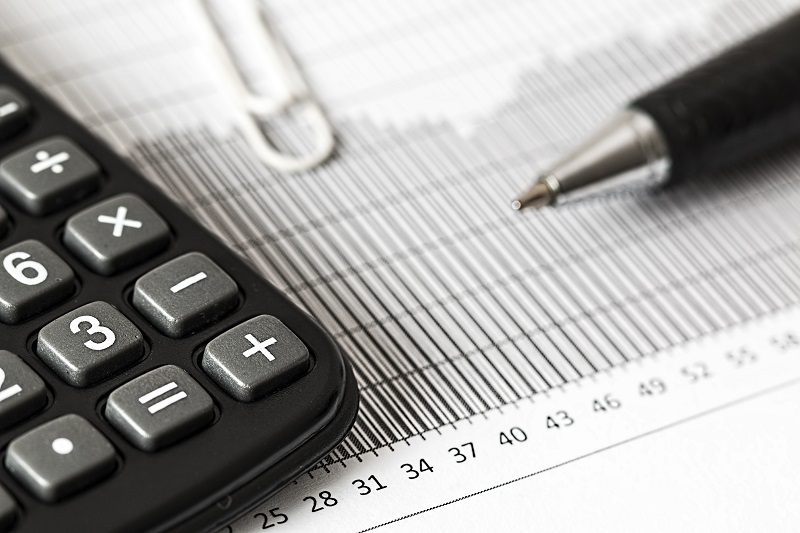Accounting for e-commerce: 5 tips for your business
Want your delivery business to grow and expand? Check out these 5 tips to organize your accounting for e-commerce

Accounting for e-commerce: the first step for the longevity of your delivery business.
E-commerce is growing all over the world. More and more companies are getting into electronic commerce, and the results can now be seen in every sector of economy.
Whether you’re selling products or providing services, taking your business straight into client’s homes is essential if you want to be on top of your game. After all, delivery is already a part of our daily lives.
But if you want to make sure your e-commerce will be successful, you need to pay attention to many different factors. It’s important to be aware of client’s needs and demands, and taking care of your post sale strategies is equally important.
But what separates a successful seller from the rest is, above all, financial organization skills. It’s important to keep your financial records organized and updated, to:
- Always have data at hand, to help you on decision making;
- Know client’s needs better;
- Anticipate and prepare for changes in the market;
- Make the payment of taxes even easier.
It’s really easy to apply some basic accounting for e-commerce principles in your business. We’ve listed some of them to give you a help. Check them out now!
Do you know the importance of accounting for e-commerce?
Every business starts with an idea and good intentions. You wanna sell your products, or offer a service, and delivery is the best, easiest way to reach customers.
But good idea and good will are not enough. Besides having to put on the work, you also need control over your expenses and income. And that’s where many entrepreneurs hit a wall.
Financial control is essential for your business’ success. Even those with an instinct for administration eventually need to sit down and review their company’s finances.
Besides market issues, such as variations in demand and rises in prices, depending on where you live there may be laws, taxes, fares and documents to be organized, if you want to avoid problems in the future.
Besides, many difficulties may come from lack of experience. When we’re dealing with money, many times we let emotions speak louder, and if you don’t have control over your business’ finances, you may end up in a bad situation!
Accounting for e-commerce is simpler than it seems

It’s common that, when talking about accounting, you may immediately turn the other way.
Throughout our life, we’re induced to think that dealing with money is something complicated and full of risks. Because of that, many entrepreneurs end up using a more instinctive approach: analyzing their business’ success by the amount of sales, or the how much many they have at the end of the day.
You should know, however, that this attitude can bring serious risks and compromise your chances for success, no matter what segment!
Not keeping financial record might mean less hassle at the moment. But keep in mind that, eventually, you’ll end up having to pay for this mistake.
Let’s check out some tactics and see 5 tips to take care of the accounting of your delivery in an easy and practical way.
1. Keep your records at the tip of the pencil – or the click of the mouse
For starters, you’ll need a place where you can write the financial records for your e-commerce.
Big companies usually have accounting softwares, which in many cases are custom made. But don’t worry: right now, you don’t need to make such a big investment.
If you’re already familiar with computers, you may use an electronic spreadsheet, such as Excel, for example. This kind of software helps organizing your records in an easily customizable way, making them adjustable for your needs.
Besides, electronic spreadsheets can help you keep your data updated, since in just a few clicks you can update the incomes and outcomes of your business.
There are many models of financial control spreadsheets on the internet, which you can download for free. Some of these models already come with the formulas built in, to help you calculate your profit and pending spending.
But, if you’re not used to these computer programs, paper and pen can be of great help. The tip here is to separate a page for each day, writing down every sale and expense, dividing them in two columns side by side.
Leave a page to register every pending expense for the following month. If you prefer, you can also use a planner, which will make this organization much easier.
There are also many cash books that are appropriate for this, which you can find in stationery stores. If you want, you can use a printable spreadsheet model.
2. Register every expense
Accounting for e-commerce involves the registering and analysis of incomes and expenses. Let’s start by understanding what these expenses are.
It’s about all that can be considered a cost in your business. If you have a pizza delivery, for example, the most obvious expenses that come to mind are:
- Ingredients;
- Packaging;
- Labor expenses (salaries, taxes related to employees, etc.);
- Advertisement.
But the expenses don’t stop there. After all, to make your pizzas there are many expenses that often times we don’t take into consideration. Utensils and appliances in your kitchen need electric light to work – therefore, your light bill is another expense.
The rent of the space where your kitchen is located, the wood for the oven, the internet to take in orders, and even the gas you use to go to the market and purchase ingredients: all of this should enter the accounting of your delivery as expenses.
Register every single expense your business has, detailing prices and describing each one of these costs. Include in this estimate those fixed expenses you have to keep your company going, even when you’re not making deliveries.
A tip is to separate expenses according to their nature, even when they’re included in the same receipt. For example: if you bought ingredients and napkins in the same place, these two expenses should be recorded separately. After all, one refers to the preparation of your product, and the other refers to the packaging.
This way, you’ll have control over the expenses in every step of the process, from announcing your products to the post-sale. This will give you important data for decision making, such as changes in prices.
Don’t forget to keep every receipt , to make the control of these expenses much easier.
3. Keep close control of your income
As for the income, these refer to all that you receive as the result of your work.
Following the same example of the pizza place: when you sell a pizza, you’ll receive X amount of money from the client. But what about the way you’ll receive this amount? And the date when this money will effectively enter your bank account? This has a lot to do with the payment option the client chooses, and the platform you use to sell.
Since delivery works with many different payment options, such as credit cards and digital wallets, it’s not unusual that you won’t have immediate access to the money you get from your work. Therefore, it’s important to keep close control of all sales and income.
When you know exactly how much money you have pending to receive, it’s much easier to compare it to your expenses and organize your finances.
This is also good for sales in installments: register every installment as an income for their respective month, so that you’ll avoid a mess in your balances.
Besides, it’s important to consider that many incomes bring with them hidden expenses. Bank tariffs and sales taxes are among the most common. Get informed about possible taxes and tariffs in your region, and avoid unpleasant surprises.
4. Keep your personal and professional finances separate
This tip is the key to success, especially for those who operate a delivery straight from their home, or a family business.
Money is a serious thing – and it’s common that people mix up finances with personal issues. Therefore, it’s important that you keep your e-commerce’s finances separate from your personal cash flow.
It means, basically, that you shouldn’t mix your personal expenses from the ones from your company. It’s important even if you don’t have employees and work alone!
If you operate a product or service delivery from your home, some of your domestic expenses, such as internet or electrical bill, may mix with the expenses from your company, totally or partially.
However it’s important that personal expenses such as clothing, food and transportation are out of this accounting.
At the end of each month, calculate every earning and expense. The difference between them is the profit of your business in this period. Use this profit as you wish – the ideal thing to do is invest a part of this amount, while the rest covers your personal expenses. Another tip is to keep separate bank accounts, to make financial control easier.
5. Regularize your business
Get informed on how you can regularize your business in your region. This in an important tip to make sure you’ll grown in the long run!
Besides being up to date with your legal and tributary obligations, you may also have find benefits such as:
- Discounts in taxes;
- Easier hiring for employees;
- Working permits, which are mandatory for some activities;
- Credit lines and loans;
- Invoice issuance.
In many regions, the process of small business regularization is now online. Some places also have programs to help support small business owners that can help you reach new heights!

With time, your company will grow, open new branches and hire employees. This way, you’ll get to sell to more and more clients. From this moment on, consider hiring an accountant or a lawyer, to help you expand your business.
Whenever you need, count with Delivery365 to help take your products and services to consumers, in an easy and intuitive way! Get in touch to know more about our delivery commerce platform.


